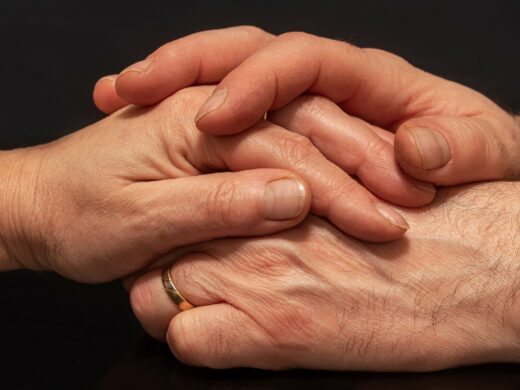Trust
by: Amy Tai
We flex our trust muscles every day, whether we realize it or not. We trust our alarms to wake us up on time, our cars to get us to work, the pilot to land the plane, our hearts to keep beating. Without even thinking twice about it, we trust so many people and things. But at what point do we realize that trust is something that has to be earned?
Trust is about so much more than just believing that someone will do what they say they will do. It is about allowing yourself to be emotionally exposed and vulnerable in front of someone. Inviting someone into the deepest, darkest parts of your life, not knowing how they will respond but trusting they will be supportive.
Learning to trust, be vulnerable and share with others is courage in action. This is what happens at The Gatehouse. Survivors of childhood sexual abuse, are sometimes for the first time ever, trusting others with their story.

Dr. Brené Brown explains trust with the acronym “B.R.A.V.I.N.G”, Brené explains that; Boundaries, Reliability, Accountability, Vault, Integrity, Non-Judgment, and Generosity are critical components of trust. As she continues to explain each word it becomes clear that trust is a two-way street. To trust others, you first have to believe that you are worthy of receiving whatever it is you are trusting the other person to give you; whether it be support, encouragement, or love. In the same way, when we are determining if a person is trustworthy or not, we also need to examine ourselves and ask if we are trustworthy as well.
Since trust is earned, it can also be lost. Once our trust is lost or broken, it is hard to learn to trust again. We can easily build up walls, shutting everyone out, and genuinely believe (or trust) that we are protecting ourselves. Dr. Jennice Vilhauer explains that “when our trust is broken it is not just with the other person, but often with ourselves. We not only question what the other person did but how we let the betrayal happen (2016).” When we forgive and try to move forward in building back that broken trust, it is not just something we do for the sake of the other person, but something that is crucial for our own inner peace and wellbeing.
Trust is the foundation upon which our relationships are built. When someone betrays your trust, it does not just affect that relationship, but all our relationships. When we try to repair the broken trust, it is important that we give ourselves compassion and forgiveness. While it is easy to feel you are the one to blame for trusting in the first place, what someone chooses to do to you is not a reflection of you, but of them. For this reason, it is important that before anything, you restore trust with yourself before you rebuild trust with someone else.
Learning to trust someone for the first time is hard enough, and so, learning to trust someone who has betrayed us before may not even make sense or be safe. By exploring trust and how it has hurt you but also being open to healthy trust in the future can give you the freedom to regain control of other relationships.
It takes so much courage, to trust someone, and let ourselves be vulnerable once we have lived through great betrayal. But it opens the doors to so much possibility, potential, and healing. We have to trust in the possibilities of our lives before we can trust someone else to provide us with those opportunities. We have to trust that we have potential before we can trust someone else to help us unlock that potential. We have to trust our own strength before we can trust someone else to show us how strong we are.
In every circumstance, whether it be your relationship, your alarm, or the pilot of the plane you are on, trust begins with yourself. You have the choice; you hold the power. Do you trust yourself and embrace your vulnerability – flaws and all? Or do you continue to shelter behind the walls you have built?
As Johann Wolfgang von Goethe once said, “As soon as you trust yourself, you will know how to live.”
References
Vilhauer, J. (2016, September 4). How to rebuild trust with someone who hurt you. Psychology Today. https://www.psychologytoday.com/ca/blog/living-forward/201609/how-rebuild-trust-someone-who-hurt-you

